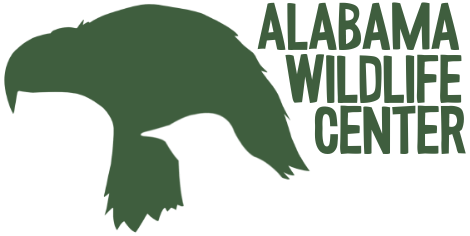We started this project with the hypothesis that many of the healthy juvenile raptors that get separated from their parents and end up in wildlife rehabilitation programs could actually be reunited with their families to be raised in the wild.
Experienced raptor rehabilitators know that once contact is established between the young raptor and its parents, it’s almost always safe to assume that the parents will take care of their youngster. But sometimes it isn’t that easy. It may take hours of patient observation to verify that the adults are in the area and have located their missing offspring.
In 2001, AWC developed a tool that made it a great deal easier to attract the attention of the young raptor’s parents. We play a recording of the juvenile’s food-begging call or else its alarm call, and in many cases the parents are attracted to the site–even after a separation of a week or more. With this tool, we have been able to greatly increase the number of young raptors reunited or fostered. There are now many rehabilitation facilities around the world using this method and the CD of calls that were developed here.
To order a copy of Calls of the Wild, Using Recorded Calls & Other Tools to Reunite Juvenile and Adult Raptors, contact the National Wildlife Rehabilitators Association:
NWRA Central Office
National Wildlife Rehabilitators Association
2625 Clearwater Road, Suite 110
St. Cloud, Minnesota 56301
320-230-9920
NWRA@nwrawildlife.org
Study results have concluded that this project reduces by 50% the number of young raptors requiring care at our rehabilitation facility.
 A challenge grant of $25,000 was awarded for this project through a joint program of Southern Company, the National Fish and Wildlife Foundation and Sea World/Busch Gardens to launch a new conservation initiative, The Power of Flight Fund, that is providing more than $1 million in on-the-ground habitat conservation and education programs to benefit birds in Georgia, Florida, Alabama, and Mississippi. All of these projects complement the mission of the U.S. Fish and Wildlife Service, and several provide direct financial support to refuges or Service programs.
A challenge grant of $25,000 was awarded for this project through a joint program of Southern Company, the National Fish and Wildlife Foundation and Sea World/Busch Gardens to launch a new conservation initiative, The Power of Flight Fund, that is providing more than $1 million in on-the-ground habitat conservation and education programs to benefit birds in Georgia, Florida, Alabama, and Mississippi. All of these projects complement the mission of the U.S. Fish and Wildlife Service, and several provide direct financial support to refuges or Service programs.
 The Alabama Wildlife Center received an additional grant from Southern Company and the National Fish and Wildlife Foundation to continue work on the Juvenile Raptor Restoration Project in 2004. The Alabama Wildlife Center was also awarded national support for the Juvenile Raptor Restoration Project from the SeaWorld/Busch Gardens Conservation Fund.
The Alabama Wildlife Center received an additional grant from Southern Company and the National Fish and Wildlife Foundation to continue work on the Juvenile Raptor Restoration Project in 2004. The Alabama Wildlife Center was also awarded national support for the Juvenile Raptor Restoration Project from the SeaWorld/Busch Gardens Conservation Fund.
We wish to extend our sincere thanks to our sponsors, who made this project possible.
